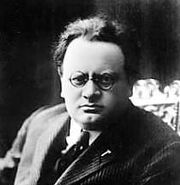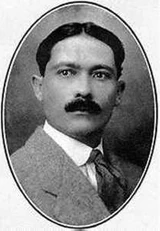(create article) |
mNo edit summary |
||
| Line 38: | Line 38: | ||
| style="text-align: center;"|1,100,065 |
| style="text-align: center;"|1,100,065 |
||
| style="text-align: center;"|36.5 |
| style="text-align: center;"|36.5 |
||
| − | | style="text-align: center;"|3, |
+ | | style="text-align: center;"|3,010,000 |
|- |
|- |
||
|[[California]] |
|[[California]] |
||
| Line 69: | Line 69: | ||
|- |
|- |
||
|[[Jefferson]] |
|[[Jefferson]] |
||
| − | | style="text-align: center;"|3,214, |
+ | | style="text-align: center;"|3,214,759 |
| style="text-align: center;"|50.1 |
| style="text-align: center;"|50.1 |
||
| style="text-align: center;"|3,201,945 |
| style="text-align: center;"|3,201,945 |
||
| Line 87: | Line 87: | ||
| style="text-align: center;"|'''12,123,578''' |
| style="text-align: center;"|'''12,123,578''' |
||
| style="text-align: center;"|'''45.4''' |
| style="text-align: center;"|'''45.4''' |
||
| − | | style="text-align: center;"|'''26,674 |
+ | | style="text-align: center;"|'''26,674,593''' |
|} |
|} |
||
Revision as of 19:21, 11 May 2018

Liberty Party candidate Alvin Silva.
The 1932 Mexican elections took place in April 1932 for the purpose of choosing the President and Congress of the United States of Mexico. It resulted in the defeat of incumbent President Pedro Fuentes of the United Mexican Party by the Liberty Party candidate, Senator Alvin Silva of Durango.
The election was a referendum on Fuentes' presidency, and in particular on Fuentes' efforts to establish effective government control over Kramer Associates, the largest company in the world. The K.A.'s role in forcing the Manumission Act through Congress in 1920 had convinced Fuentes that it held too much power over the government, and in 1929 he established a government commission chaired by Secretary of the Exchequer Stanley Zwicker to "investigate large corporations in the United States of Mexico, and make suggestions for legislation." K.A. President John Jackson was determined to thwart Fuentes, so for the next three years he combined a public relations campaign against Fuentes with a vast, complex reorganization of K.A. to stymie the Zwicker Commission's investigation.
Although the opposition Liberty Party had traditionally opposed K.A., the party and the company had established a truce during the fight over the Manumission Act. Now that the U.M.P. had declared war on Kramer Associates, Silva came to the company's defense. In 1931 he published a book, The Search for the Mexican Soul, in which he called for an end to "old programs and ideas that were useful when conceived, but which mean nothing today," referring to the Zwicker Commission, as well as to his own party's longstanding antagonism with K.A.
Silva was first elected to the Senate from Durango in 1920, and he had faithfully supported President Emiliano Calles' manumission and plebiscite programs, as well as his unsuccessful social programs. He was a strong believer in national unity, and in the defense of traditionally oppressed groups such as the Negroes and Mexicanos. Silva was also apparently an adherent of the Moral Imperative, a late-nineteenth century philosophy that held that it was the "moral imperative" of advanced nations to raise up more backward peoples, if necessary through imperialism. In The Search for the Mexican Soul, he wrote, "We must search out the national destiny. It is to be found within ourselves, but also outside the country. Mexico has a destiny in the world which it has long ignored. This can continue no longer." In a vitavision interview, Silva went further: "While the President worries about Kramer Associates, the world is changing rapidly. A visit to Honolulu would do him a world of good, not only to refresh his sagging spirit, but to give him a better perspective on the world as it is, not as it was." Thus, Silva had reversed the longstanding Libertarian opposition to imperialism, as well as the opposition to Kramer Associates.

U.M.P. candidate Pedro Fuentes.
At the U.M.P. convention, Fuentes was able to gain the nomination again, although Sobel describes the mood of the convention as "sullen." In his acceptance speech, Fuentes pledged himself "to the completion of this great task before us." He went on to say, "If we end the influence of this behemoth over our lives and do nothing else in the next six years, posterity will consider our efforts well worth it."
When the Libertarians held their national convention, former Secretary of State Albert Ullman gave a keynote address in which he accused Fuentes of "monomania of the worst kind." The Libertarian platform called for increased public works, encouragement of private initiative in the states, better relations with other nations, and increased social insurance. One section of the platform included a pledge to take "effective action on control big business," but was vague and did not mention K.A. by name. Sobel notes that the Libertarians criticized Fuentes for his failures, then swore to do a better job of promoting his programs. It was, Sobel states, poor logic but good politics. After the adoption of the party platform, the convention chose Silva as their presidential nominee.
The campaign between President Fuentes and Senator Silva was a spirited one, with Silva criticizing Fuentes as inept, "even when he concentrates his attention on a single objective," while Fuentes denounced Silva as a tool of K.A. and a pawn for Jackson. Fuentes's attacks backfired, and Silva was able to win 55% of the vote, along with majorities in every state except Alaska and Durango.
| State | Silva votes | Silva % | Fuentes votes | Fuentes % | Total votes |
|---|---|---|---|---|---|
| Alaska | 439,996 | 49.1 | 455,998 | 50.9 | 895,994 |
| Arizona | 1,909,935 | 63.5 | 1,100,065 | 36.5 | 3,010,000 |
| California | 4,256,892 | 59.5 | 2,895,602 | 40.5 | 7,152,494 |
| Chiapas | 1,935,496 | 55.4 | 1,557,978 | 44.6 | 3,493,474 |
| Durango | 2,296,972 | 47.9 | 2,495,394 | 52.1 | 4,792,366 |
| Hawaii | 496,965 | 54.4 | 416,596 | 45.6 | 913,561 |
| Jefferson | 3,214,759 | 50.1 | 3,201,945 | 49.9 | 6,416,704 |
| Mexico del Norte | unknown | unknown | unknown | unknown | unknown |
| U.S.M. | 14,551,015 | 54.6 | 12,123,578 | 45.4 | 26,674,593 |
In his inaugural address, Silva warned of foreigners "who would threaten our nation. Even now, Hawaii is in danger of attack," paraphrasing a speech delivered by Benito Hermión just before the outbreak of the Great Northern War. This was noted by the North American journalist Charles Martin of the Burgoyne Herald, who wrote four years later that "The voice was Silva's but the words sounded suspiciously like those of El Jefe."
Sobel's sources for the 1932 Mexican elections include Silva's The Search for the Mexican Soul (Mexico City, 1931); and the 15 November 1931 issue of the Mexico City Herald. Election results are from the U.S.M. Statistical Abstract, p. 114.
| U.S.M. National Elections |
|---|
| 1821 • 1827 • 1833 • 1839 • 1845 • 1851 • 1857 • 1863 • 1869 • 1875 • 1881 • 1902 • 1908 • 1914 • 1920 • 1926 • 1932 • 1938 • 1944 • 1950 • 1965 |
